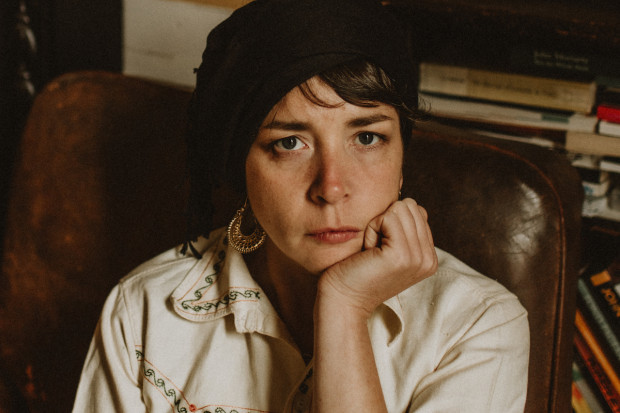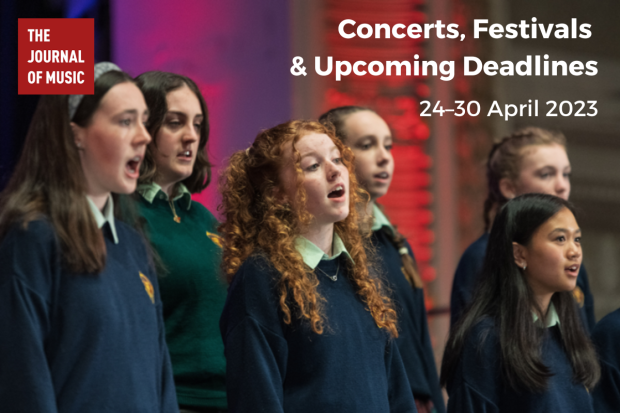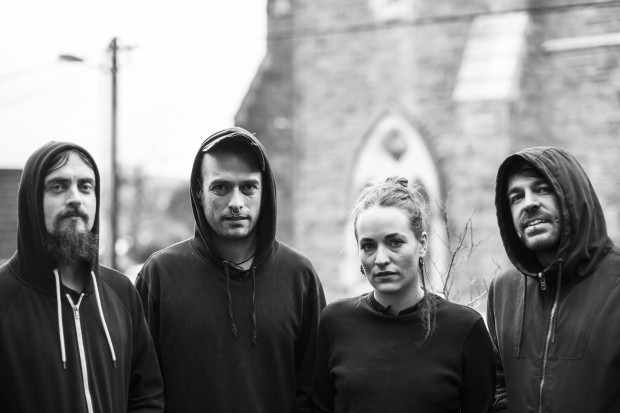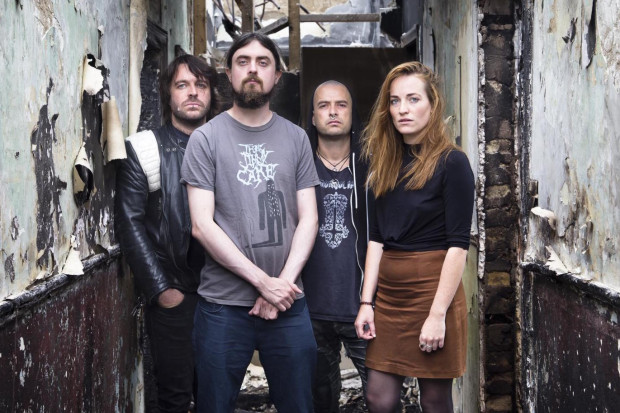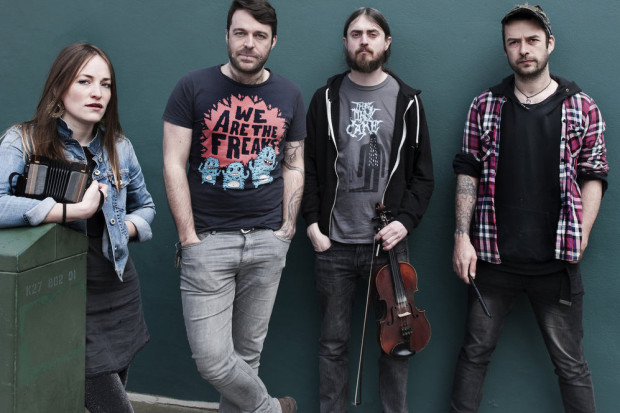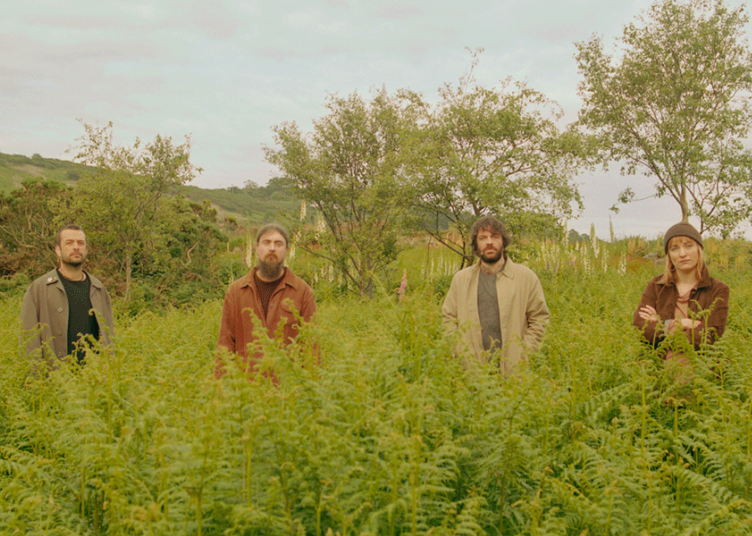
Lankum
Lankum Won’t Let Ireland Forget
The music writer Barra Ó Séaghdha once observed a connection between the success of the Irish economy and a decline in slow-air playing. Bustling commerce took the traditional musicians with it, he suggested, speeding up and layering their sound, meeting a demand for entertainment created by ‘societal amnesia’ and market forces. Although the slow air did make a return with the economic crash, the essay, titled ‘The Price of Happiness?’, reminds us that there is a significance to the music created at critical times.
Recently, at the RTÉ Radio 1 Folk Awards, I noticed another aspect of traditional music conspicuous by its general absence: the wild, fast set of dance tunes. Most of the broadcast show – and there were fifteen performances – was made up of moving, mournful songs, with regular references to the climate emergency and other societal struggles. When a chipper set of tunes did appear at the very end, played by Martin Hayes and Cormac Begley, they performed the first jig an octave apart, and then a reel two octaves apart, lest we think of getting comfortable.
The joyous set of tunes has always been one of Ireland’s ways of forgetting, of blocking out the future, the past, and the present, as needs be. But it’s not as easy anymore, or maybe our mood is different. We have been through the humiliation of the crash and surprised ourselves with our endurance. Brexit has allowed us to talk openly about the North, history and unity. Perennial social issues aren’t buried under the blankets as easily. Is Ireland still wallowing in its victimhood or is it looking at things squarely in the eye?
Stasis
Over the past five years, the music of Lankum seems to have captured something of this debate. They sing songs and play tunes but there is a reluctance to provide comfort or reassurance – to allow us pat ourselves on the back – as modern traditional music has often helped us do. Over the course of their three albums, the balance of tunes versus songs has also tipped to the latter, away from the devil-may-care instrumental to something closer to frustrated stasis.
In one sense, their just released The Livelong Day appears to be part of a wider musical movement, a move towards stillness and contemplation, championed by labels such as Ergodos and Erased Tapes, but there is a blackness in this album which is different.
The recording begins with a ten-minute version of ‘The Wild Rover’, with Radie Peat’s vocal ruminating on a life of squander and how ‘for the future I must take better care.’ It is a song that once commanded communal singing in every Irish pub around the world, but now there’s no rousing ‘No, nay, never’ as the Dubliners use to sing it. Instead, a chiming guitar in a slow waltz begins and ends it. Beneath the lyrics, fiddle, accordion and concertina slice away at the texture with drones and groans.
‘The Young People’ is also in slow waltz time. A seven-minute regaling of a story of youth suicide, it develops, like ‘Cold Old Fire’ from their first album, into an anthem for the current generation that got unaffordable rents and rising sea levels.
When a tune does come, it is after the five-minute ‘Ode to Lullaby’, a melody-less pulsing soundscape on accordion basses, the sound of uilleann pipes bellows, and echoes of strings. It fades and ‘Bear Creek’ emerges, again from the wheezes of the accordion bass. Cormac MacDiarmada begins an old-timey tune on fiddle followed by concertina, but the basses never conform, maintaining a dissonance and distance beneath, just like Hayes and Begley. When respite does arrive it is brief, showing that, with Lankum, hope is never going to come easy. The texture soon detours again into disharmony.
Similarly with ‘The Pride of Petravore’ – a tune that De Dannan use to throw off as a fun hornpipe – Lankum’s version rolls over a pulsing bass that never truly harmonises and then releases the second part into something closer to trash metal.
They’ve changed their tune
Peat’s version of ‘Katie Cruel’, like ‘The Turkish Reveille’ on Between the Earth and Sky, is a heavily slowed down version of an American folk song. It focuses on the voice of regret: ‘When I first came to town / They called me the roving jewel / Now they’ve changed their tune…’. The entire album, just eight tracks, ends with ‘Hunting the Wren’, labouring and tragic: ‘Sharp is the wind / cold is the rain / harsh is the livelong day…’.
We’ve changed our tune alright. The Livelong Day is an unexpected album, musicians pushing their sound into the ground. The songs are beautiful but discomfiting. Dance tunes were always Ireland’s way of blocking things out, of saying to hell with it and disappearing into the night. Their absence at the folk awards and their uncomfortable presence on The Livelong Day, combined with the slow, deliberate song renditions, is telling us something. Folk musicians are slowing down the debate. There is no point in moving on if we don’t face up to today.
The Livelong Day is released on the Rough Trade label and available on vinyl and CD. Visit www.roughtrade.com/gb/lankum.
Published on 7 November 2019
Toner Quinn is Editor of the Journal of Music. His new book, What Ireland Can Teach the World About Music, is available here. Toner will be giving a lecture exploring some of the ideas in the book on Saturday 11 May 2024 at 3pm at Farmleigh House in Dublin. For booking, visit https://bit.ly/3x2yCL8.










